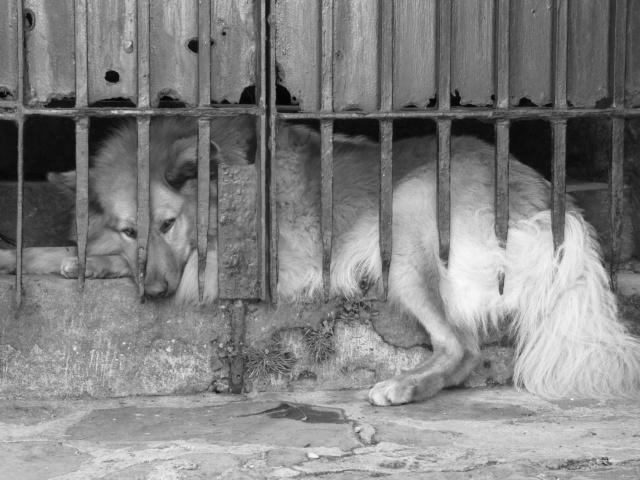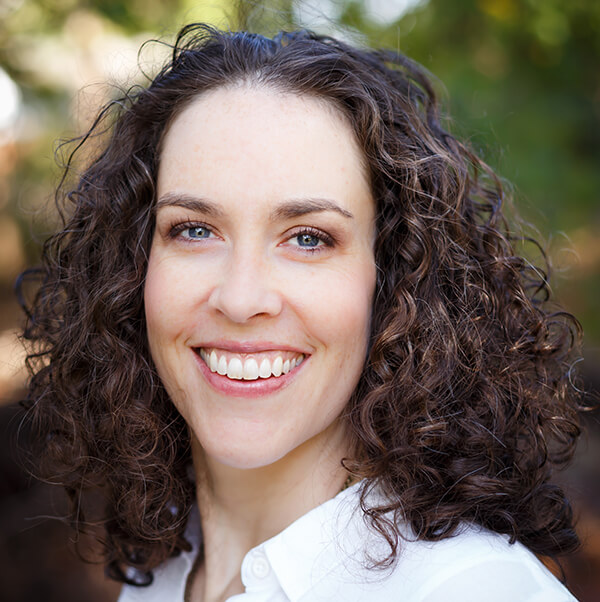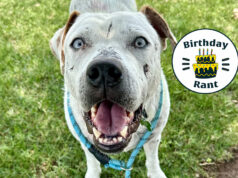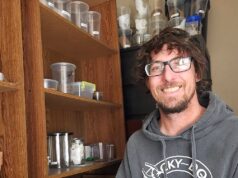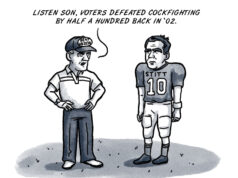
When a building meant to house 100 animals is a semi-permanent home to more than 400, reporters start showing up at the door.
Over the past few weeks, thanks to The Oklahoman and News 9, the public is getting a glimpse inside the Yukon animal shelter Pets and People Humane Society and seeing what many animal advocates have known about for years.
The Oklahoman’s article failed to explore the relationship between Pets and People and the City of Yukon. The two entities — one a 501(c)(3) nonprofit, the other a department of city government — share a building, staff and resources.
The City of Yukon’s track record with animal care is spotty at best: Twenty-five years ago, Pets and People took on adoption services for the city’s impounded animals because, apparently, the city wouldn’t. Without Pets and People, the city of Yukon would have no adoption program. Although the city is responsible for staffing the shelter and maintaining the aging building (fallen ceiling tiles can be seen in the NewsOK video linked above), it has have failed to do either adequately for the last 20 years. The city has no humane-education or adoption programs, no shelter manager and no spay/neuter initiatives.
Essentially, Pets and People provides all the services and staffing that animal shelters provide without the tax funding that most shelters typically receive. Over the years, however, they’ve done it less and less successfully.
‘Dark truth lurks behind no kill’
The leadership at Pets and People has become enamored with the “no-kill” philosophy. What could be wrong with the idea of ending the killing of all non-irremediably suffering animals, after all? It sounds great, but a dark truth lurks behind those optimistic words.
The vast majority of municipal and county animal shelters in Oklahoma are “open-admission” shelters. They cannot turn away any animal for any reason. Since most shelters’ intake drastically exceeds the number of animals going out, they euthanize animals because they don’t have enough space. Shelters are often vilified for doing so, but this is a community problem. Citizens do not pass initiatives that support their shelters, nor do communities properly fund the humane treatment of their local animals (especially in Yukon). Citizens fail to spay and neuter their pets, dump unwanted animals in the streets and buy dogs and cats instead of adopting. In turn, shelters euthanize animals because they cannot humanely house as many animals as they take in on a daily basis.
What’s happening at Pets and People is a textbook example of what happens when open-admission shelters stop euthanizing for space. Nobody’s arguing with the utopian ideals of no kill, but they are nearly impossible to achieve in reality.
Yukon animal shelter ignores reality
Not every animal is adoptable. Some are so abused, sick or injured that to keep them alive, languishing in a cage, amounts to cruelty. Even animals that are adoptable when they enter a shelter, after spending weeks and months confined, may deteriorate to the point where they are no longer safe or suitable pets.
At Pets and People, dogs and cats are stacked in too-small crates, exhibiting compulsive behaviors typical of extreme anxiety. You know the rush of adrenaline you feel when you just miss having a car accident? That is the way cats and dogs in shelters feel all the time, because their sensitive noses and ears are bombarded by thousands of scents and sounds every single second.
While we can say, “It’s only until they find a home,” the animals don’t know that. Animals live in the here and now, and that dirty, lonely cage that doesn’t let them stand up or stretch their legs — that singular hell is their past, present and future. Keeping these animals alive at any cost is not humane.
We can talk about this ad nauseam, but the clock is ticking in Yukon. What needs to happen to fix it?
Four initiatives to end the suffering
Pets and People: Accept help. Animal welfare folks are notoriously competitive and petty with each other. Put that aside. If a reputable organization reaches out and offers to take some of your animals, let them.
Pets and People: Implement an open-adoption policy. Try as hard as you can to allow every person who wants to adopt an animal to do so. If someone wants to declaw a cat or plans to leave a dog outside while they are at work, educate them on why these aren’t best practices, but, ultimately, trust them to take care of their pet. Know that, if you deny them, they may go to a breeder or pet store, where the pet they obtain will not be spayed or neutered. Let people adopt. Help them become great pet owners. Any animal would prefer an “average” home to hours of compulsive licking and spinning in a too-small cage.
To the community: Spay and neuter your pets. Choose adoption instead of buying a pet. Shelters are overcrowded because we fill them up. Be a responsible pet owner. Volunteer to make life a little better today for animals in the shelter.
City of Yukon: Get with the program. You have ignored this for too long. Sever ties with Pets and People and set up your own shelter with appropriate services for a prosperous city of your size. Or, cooperate with Pets and People by providing funding, staff and general support for their endeavors.
Pets and People and the City of Yukon, you have to change. If you truly want to help the animals in your care, you need to make radical changes to your leadership, your adoption policies, your facilities and your relationships with other animal-welfare groups in this community and with the public. You need a complete overhaul. It’s time to lay aside your pride and roll up your sleeves to do what is right.
The cornerstone of the no kill movement is the belief that ANYTHING is better than euthanizing an animal. But truly, there are situations worse than death for an animal, and living in the current conditions at Pets and People is one of them.









